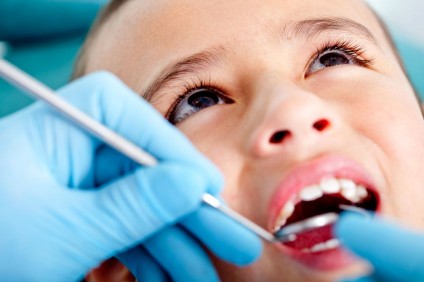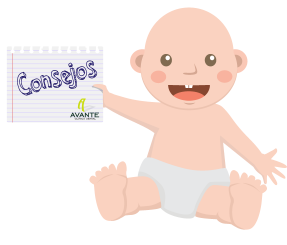
Paediatric dentistry is the branch of dentistry that cares after children´s oral health, including prevention, treatment and maintenance, from the toddler years to teenage-hood. Any untreated alteration of the temporary dentition can affect the permanent teeth later in life.
The paediatric dentist leads a very important role in the relationship between parents-child-paediatric dentist. The attention provided to the child is special and personal to provide a pleasant experience that is in no way traumatic.
What are the most frequent dental treatments in children?
- Oral hygiene instruction and dental cleaning.
- Controlling eruption and its possible alterations.
- Preventing decay: fluoride and fissure sealants.
- Treating decay
- Early tooth loss: space maintainers.
- Pulp treatments: pulpotomy and pulpectomy on temporary teeth and root canal treatment in
- Eruptive delay or non-eruption of permanent teeth
- Traumatisms
- Study of dental anomalies
¿How can a trauma to the temporary dentition affect the permanent one?
The developing permanent tooth is very close to its temporary predecessor, and therefore an impact to the temporary tooth can cause different alterations.
The danger of causing damage to the permanent dentition is greater the younger the child is. Greater damage is caused when the traumatism happens in children younger than 3 years old.
The trauma to the permanent teeth can damages the permanent teeth in different ways: from defects in the formation of the matrix to defects in the mineralization or both. These may affect the crown, the root or the whole tooth. It can also affect the eruptive process of the permanent tooth, which may, amongst other things, stay retained in the bone.
RELATES TREATMENTS

When should a child first visit the dentist?
The child should first visit the dentist when he has a full set of temporary teeth, that is, around 2 years old. Afterwards he should continue to attend every 6 months for check-up visits.
These appointments are useful to care for their teeth, but also to get used to visiting the dentist and to make a natural habit out of it.
It is important to know that a child´s dentition starts to form during pregnancy, and therefore the mother should look after her nutrition to allow the correct formation of her baby´s teeth.
Why is it important to treat temporary teeth if they will eventually fall out?
Temporary teeth will remain in the child´s mouth until they are approximately 12 years old, and it is important to keep them healthy to allow correct mastication, occlusion and aesthetics. Temporary teeth left untreated my lead to pain, swelling, space loss or even cause damage to the permanent tooth that is forming underneath inside the bone.
When should we visit the Paediatric Dentist?
Children should attend the dentist regularly every 6 months even if they is no pain or discomfort. The paediatric dentist can then assess if there is any pathology that the parents may not see. Children should also come to the practice if there is any dental trauma, swelling, pain, eruption issues, occlusal problems or any other pathology.
How and how often should children brush their teeth?
Teeth should be brushed after every meal, at least 3 times a day; it is most important to brush teeth before bedtime. Brushing should last 3 minutes and it should be done using a child-friendly toothpaste that has an adequate fluoride concentration adapted to the patient’s age.
An adult should supervise children when they brush their teeth until they are 6 years old, to go over areas the child may have missed and to avoid the child swallowing the toothpaste. Children become more autonomous after this stage, but some supervision will still be required.